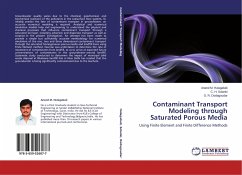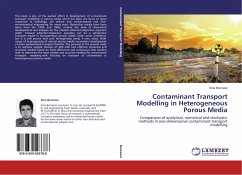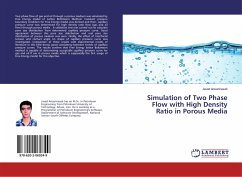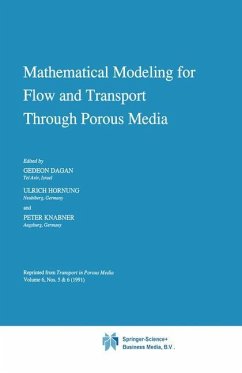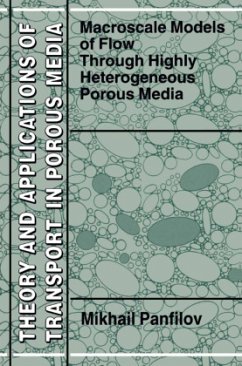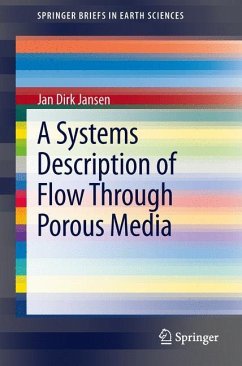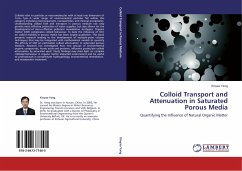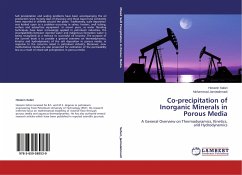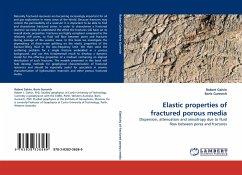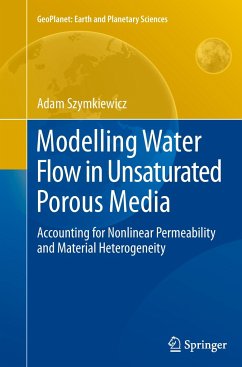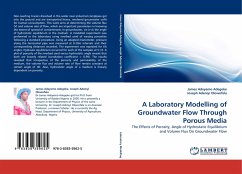
A Laboratory Modelling of Groundwater Flow Through Porous Media
The Effects of Porosity, Angle of Hydrostatic Equilibrium and Volume Flux On Groundwater Flow
Versandkostenfrei!
Versandfertig in 6-10 Tagen
39,99 €
inkl. MwSt.

PAYBACK Punkte
20 °P sammeln!
Non-reacting tracers dissolved in the water near industrial complexes get into the ground and are transported hence, rendered grounwater unfit for human consumption. This work aims at determining the volume flux (V) and volume rate of flow, which are important parameters in knowing the extent of spread of contaminants in groundwater, vis-à-vis the angle of hydrostatic equilibrium in the medium. A modelled experiment was performed in the laboratory using riverbed sand of varying porosities following a standard procedure. Using an adapted manometer, pressure along the horizontal pipe was measur...
Non-reacting tracers dissolved in the water near industrial complexes get into the ground and are transported hence, rendered grounwater unfit for human consumption. This work aims at determining the volume flux (V) and volume rate of flow, which are important parameters in knowing the extent of spread of contaminants in groundwater, vis-à-vis the angle of hydrostatic equilibrium in the medium. A modelled experiment was performed in the laboratory using riverbed sand of varying porosities following a standard procedure. Using an adapted manometer, pressure along the horizontal pipe was measured at 0.20m intervals and their corresponding distances recorded. The experiment was repeated for tilt angles. Hydraulic equilibrium occurred for each of the samples at V=0. A plot of porosity of the riverbed sand versus hydrostatic angle reveals that both are linearly related (correlation coefficient = 0.99). The results revealed that irrespective of the porosity and permeability of the medium, the volume flux and volume rate of flow remain constant at certain angle of tilt. Also, hydrostatic angle of a medium is linearly dependent on porosity.



